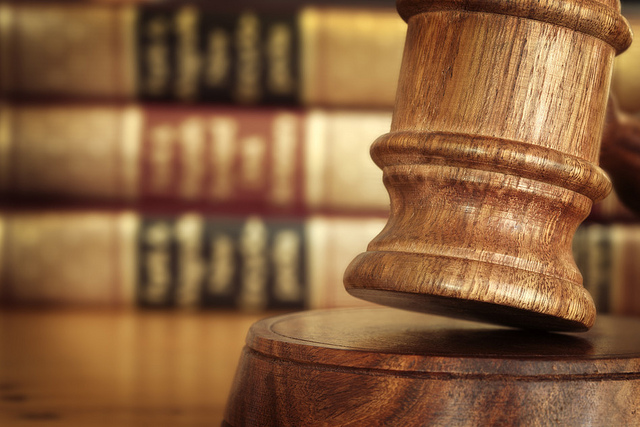Section 135 of the Strata Property Act outlines the process for enforcing bylaws in strata corporations.
The process is relatively simple.
1. The strata corporation must give notice and provide the particulars of a complaint to the person about whom a complaint is received. If the person is a tenant, then the landlord must also be given notice.
2. The strata corporation must give the person a reasonable opportunity to answer the complaint, including a reasonable opportunity for the person to request a hearing.
3. Only after the person being complained about has had a reasonable opportunity to answer the complaint, or after the hearing has been held, is the strata corporation permitted to
a. impose fines,
b. require a person to pays costs for remedying a bylaw contravention, or
c. deny that person access to a recreational facility.
The strata corporation must follow these steps in that order, or they may find themselves on the losing side of a legal battle. This was the case in Dimitrov v. Summit Square Strata Corporation (“Dimitrov”).
In Dimitrov, an owner kept a pet in contravention of the pet prohibition in the building. The strata corporation, through the building manager, notified the owner that a complaint was received about the pet, that a $50 fine had been imposed for the contravention, and that the animal had to be removed as soon as possible.
The owner did not pay the fine or remove the pet. The strata corporation sent several letters, in each increasing the amount owed by the owner for continued contravention of the bylaws. However, one of the later letters stated that the owner could “set up an appointment to meet with the Strata Board if [the owner] had any questions or concerns.”
The owner argued:
…the council’s conduct was not only a failure to comply with governing statute, but was also a violation of the fundamental principle that a person accused of wrongdoing should not be found guilty without first having the opportunity to be heard. [Para. 27]
The Supreme Court Judge agreed. Section 135 (1) required that the owner be given an opportunity to be heard before any decisions were made on the issues of guilt or penalties. The Court considered the strata corporation’s argument that the owner was invited to meet with the strata council after the fines began to accrue. But, the Court was not satisfied that the subsequent invitations cured the initial defect: the strata corporation had made a decision of guilt and applied penalties before giving the owner an opportunity to be heard.
The owner was not required to pay the fines that were charged by the strata corporation.
It should be noted that the owner was clearly in contravention of the bylaws. But, because the strata corporation failed to follow the basic procedures for enforcing the bylaws, this turned into a case of “innocent, even when guilty.”
This case highlights the importance of strictly following the procedures for enforcing the bylaws.
A copy of this judgement may be viewed on Canadian Legal Information Institute website, www.canlii.org.
Direct Link: http://www.canlii.org/en/bc/bcsc/doc/2006/2006bcsc967/2006bcsc967.html
Disclaimer:
No Legal Advice Provided
The material on this website is intended to provide only general information and comment to clients and the public. Although we make our best efforts to ensure that the information found on this website is accurate and timely, we cannot, and do not, guarantee that the information is either. Nor do we guarantee the accuracy of any information contained on websites to which our website provide links.
Do not, under any circumstances, rely on information found on our website as legal advice. Legal matters are often complicated. For assistance with your specific legal problem or enquiry please contact independent legal counsel.
No Liability to Greg Bickert
Greg Bickert Ltd does not accept any liability for your use of this website. Your use of this website is at your own risk. This website is provided on an ‘as is’ and ‘as available’ basis, without any warranties or conditions of any kind, whether express or implied. Greg Bickert will not under any circumstances be liable to you or to any other person for any loss or damage arising from, connected with, or relating to the use of this website by you or any other person.
Copyright
All material on this site is copyright 2015 Greg Bickert and may not be reproduced in any form for commercial purposes without the express written consent of Greg Bickert.

